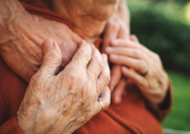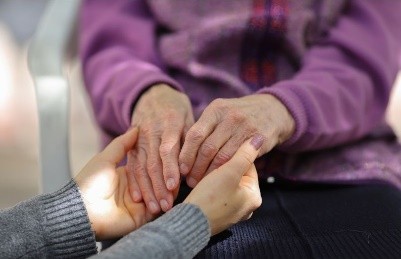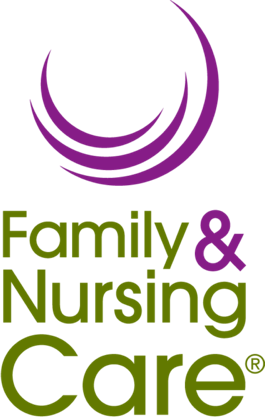Category: Blogs
Joanna Jean-Francois Receives the MNCHA Caregiver of the Year Award
Navigating the Early Stages of Parkinson’s: How Home Care Can Provide Proactive Assistance
Navigating the Early Stages of Parkinson’s: How Home Care Can Provide Proactive Assistance
A diagnosis of Parkinson’s disease is often life-altering, even when symptoms are mild. For many individuals, the early stages are marked by uncertainty — tremors, stiffness, or subtle changes in movement that may not yet interfere significantly with daily life, but they can signal the start of a challenging journey. While home care is frequently associated with the later stages of Parkinson’s, it can play a crucial role much earlier, offering a foundation of support that promotes independence, safety, and peace of mind.
Why Early Support Matters
In the initial stages of Parkinson’s disease, people often continue to live active, independent lives. However, the disease is progressive, and planning ahead can make a meaningful difference in long-term well-being. Home care during this time isn’t about taking over — it’s about empowering individuals to live on their own terms, with the right assistance in place when it’s needed most.
By building a relationship with a professional caregiver early on, individuals with Parkinson’s can benefit from continuity of care, personalized routines, and a proactive approach to managing symptoms. This kind of support can ease the emotional weight of a new diagnosis and help individuals and families feel more in control of what lies ahead.
How Home Care Enhances Life in the Early Stages of Parkinson’s Disease
Home care services can be customized to meet the unique needs of those in the early stages of Parkinson’s, focusing on:
- Medication Reminders: Timing is critical for Parkinson’s medications. Caregivers help ensure doses are taken on schedule, which can significantly improve symptom control.
- Mobility Support: Even subtle changes in balance or coordination can lead to falls. Experienced caregivers can assist with safe movement and offer guidance on home modifications to reduce risk.
- Help with Daily Activities: From meal preparation to dressing and grooming, support with everyday tasks can conserve energy and prevent frustration, enabling clients to focus on what brings them joy.
- Companionship and Emotional Support: A Parkinson’s diagnosis can bring emotional challenges. Having a compassionate caregiver present provides not only practical help but also a sense of connection and encouragement.
- Routine Establishment: Establishing consistent daily routines can help manage Parkinson’s symptoms more effectively and reduce stress.
Planning for the Future, Starting Today
One of the most important aspects of early-stage home care is the opportunity to plan ahead. Working with a highly skilled caregiver allows clients and families to gradually adapt to changing needs, rather than waiting for a crisis. It also helps build trust — a caregiver who supports an individual today will already understand their preferences and routines if care needs evolve in the future.
A Partner on the Journey
At Family & Nursing Care, we recognize the courage it takes to face a Parkinson’s diagnosis. We’re here to help by connecting you to dedicated caregivers who not only assist but empower. They can be part of the journey from the very beginning, whether it’s helping with medication reminders, providing mobility support, or simply being a steady presence during a time of transition.
To learn more about how Family & Nursing Care can provide support for those living with Parkinson’s disease, call us at 800-588-0517 or visit our Home Care and Parkinson’s Disease webpage.
Navigating Long-Term Care Insurance: How Family & Nursing Care Select Provides Unmatched Support
 As the United States population ages, long-term care insurance (LTCI) is becoming an increasingly prevalent way for families to manage the costs of home care, assisted living, and nursing home care. With 70% of adults over 65 expected to need some form of long-term care in their lifetime, planning for these expenses is critical. However, navigating the complexities of LTCI policies, claims, and reimbursements can be overwhelming for families. This is where Family & Nursing Care Select’s Long-Term Care Insurance team sets itself apart, offering unparalleled support and advocacy throughout the process.
As the United States population ages, long-term care insurance (LTCI) is becoming an increasingly prevalent way for families to manage the costs of home care, assisted living, and nursing home care. With 70% of adults over 65 expected to need some form of long-term care in their lifetime, planning for these expenses is critical. However, navigating the complexities of LTCI policies, claims, and reimbursements can be overwhelming for families. This is where Family & Nursing Care Select’s Long-Term Care Insurance team sets itself apart, offering unparalleled support and advocacy throughout the process.
The Growing Need for Long-Term Care Insurance
The aging U.S. population is driving increased demand for LTCI. According to the U.S. Census Bureau, the number of people in America aged 65 and older is projected to reach 80 million by 2040. However, despite the clear need, only 7.5 million people in the U.S. currently have LTCI coverage. Many mistakenly believe that Medicare or standard health insurance will cover long-term care, only to face unexpected out-of-pocket costs.
Without LTCI, the costs of care can be staggering. In 2023, the median annual cost for assisted living was $64,000 and a private room in a nursing home exceeded $108,000. While in-home care is more flexible and can be arranged on a short-term or long-term basis depending on the client’s needs, the hours of care needed can add up quickly, making LTCI a crucial financial safety net for many families.
Family & Nursing Care’s Long-Term Care Insurance Team: A Key Differentiator
While some home care resources may assist clients with submitting invoices to insurance companies, Family & Nursing Care Select takes a more comprehensive, hands-on approach. The company’s dedicated Long-Term Care Insurance team, led by Karin Martinez and Alexis Shaw, supports clients throughout the entire lifecycle of their claims.
Karin Martinez, Senior Long-Term Care Insurance Manager, explains, “Unlike other companies that simply send invoices, Alexis and I work with clients for the whole life of a claim. We help navigate policies, translate complicated insurance language into real-life terms, and proactively guide families through the entire process so they can be reimbursed as quickly as possible.”
Martinez also mentioned observing a consistent increase in LTCI: “Currently, 72% of clients with Family & Nursing Care Select have LTCI, and that percentage increases each year, underscoring the importance of guidance to receive the maximum benefits.”
Family & Nursing Care Select’s LTCI team offers clients and their families the following support to make the most of policies:
- Expert guidance from the initial call with an LTCI carrier to ongoing support and troubleshooting.
- Claims management assistance, ensuring policies are properly utilized and maximizing reimbursements.
- Hands-on support, including helping clients complete paperwork, understanding insurance company assessments, and filing appeals if necessary.
- Expedited reimbursements by consistently following up with clients and the insurance providers to keep the process moving smoothly and helping to avoid roadblocks that can come up.
- Education and empowerment, helping families fully understand their benefits and making informed decisions about their care
Family & Nursing Care Classic also provides LTCI support for clients by assisting them in understanding their benefits and resolving claims issues but does not submit documents on their behalf.
Helping Families Overcome Policy Challenges
One of the biggest barriers to successfully using LTCI is understanding the fine print. Every policy is different, and many clients are unsure of what is covered or how to qualify for benefits. “A lot of people assume they need to be physically dependent to qualify, but even things like fall risk can make them eligible,” says Alexis Shaw, Long-Term Care Insurance Manager. “We help clients see all their options.”
Another common challenge is the assessment process, where insurance companies evaluate whether a client qualifies for benefits. “We prepare families for these assessments, helping them understand what to expect and how to accurately represent their needs,” explains Martinez. Without this guidance, clients may inadvertently downplay their needs, leading to denials.
Additionally, insurance companies often face challenges by not receiving invoices from home care providers and insufficient details on those invoices to adequately support claims. Fortunately for clients, Family & Nursing Care Select’s LTCI team’s primary job is to advocate on their behalf to address all these common issues. The team can often even help clients uncover additional benefits within their policies, such as coverage for medical equipment, home modifications, and emergency response systems. “Many families don’t realize that policies can help cover things like special equipment, grab bars, stair lifts, home modifications, life alert systems and even aging life care professional benefits,” says Martinez.
A Service Families Rely On
The impact of Family & Nursing Care’s LTCI team is evident in the gratitude they receive from clients. “We often hear sighs of relief from family members who say, ‘We couldn’t have done this without you,’” says Martinez. “We take on much of the burden of keeping up with the claim process, so family members can focus on their loved one.
In fact, the LTCI team estimates on average they help families receive reimbursements totaling over $100,000 annually, ensuring they get the funds they are entitled to. Their advocacy also doesn’t end when home care services stop — the LTCI team often helps older adults as they transition to assisted living facilities or even months down the road after leaving with insurance-related issues.
The Future of Long-Term Care Insurance
While traditional LTCI policies are evolving, newer hybrid policies are emerging, combining life insurance with long-term care benefits. These policies allow unused benefits to be passed down to family members, making them an attractive alternative to traditional models.
However, as policies evolve, insurance companies are also introducing new hurdles, including stricter eligibility requirements and digital verification processes that can be difficult for older adults to navigate. “Technology is growing in every respect, which can be daunting for seniors,” explains Shaw. “This is just another reason why our support is so critical.”
Why Family & Nursing Care Select’s LTCI Team Stands Out
Family & Nursing Care Select’s commitment to holistic support for clients is what sets its LTCI team apart. “We are here to relieve stress and let families focus on what truly matters — their loved one’s well-being and their own peace of mind,” says Martinez. By providing expert guidance, hands-on assistance, and proactive advocacy, the LTCI team helps ensure clients receive the full benefits they deserve with as little hassle as possible.
For families navigating the complexities of long-term care insurance, the difference between handling it alone and having a dedicated LTCI team by their side can mean everything. To learn more, visit our Home Care Services webpage.
The Continued Challenges of the Sandwich Generation and How Home Care Can Make a Difference
 The Sandwich Generation — adults who are simultaneously caring for aging parents while raising children — continues to face mounting pressures in today’s world. Balancing work, family responsibilities, and caregiving can often feel overwhelming, especially with an aging population and growing demand for eldercare. While the challenges remain significant, support solutions like professional home care services can help alleviate the burden.
The Sandwich Generation — adults who are simultaneously caring for aging parents while raising children — continues to face mounting pressures in today’s world. Balancing work, family responsibilities, and caregiving can often feel overwhelming, especially with an aging population and growing demand for eldercare. While the challenges remain significant, support solutions like professional home care services can help alleviate the burden.
The Evolving Struggles of the Sandwich Generation
Recent studies show that more adults than ever are finding themselves caught in this dual caregiving role. A quarter of people in America reported being in the Sandwich Generation in 2021, according to Pew Research Center — and that number is expected to rise as more Baby Boomers retire and an estimated 80 million people will be age 65 or older by 2040. A growing number of people in their 40s and 50s are managing the care of aging parents while also supporting their children’s academic, social, and financial needs. This balancing act often leads to stress, burnout, and even financial strain, particularly as costs continue to rise.
For many, this role extends beyond physical care. Emotional and logistical responsibilities, including coordinating doctor’s appointments, managing medications, and making tough healthcare decisions, add another layer of complexity. Many caregivers also struggle with guilt, feeling as though they are not doing enough for their loved ones, despite dedicating countless hours to their care.
The Impact on Work and Well-Being
Members of the Sandwich Generation often juggle full-time jobs while serving as primary caregivers. According to recent reports, nearly 60% of family caregivers are employed, and many report experiencing workplace challenges due to caregiving responsibilities. Issues such as absenteeism, decreased productivity, and mental exhaustion are common, with some caregivers needing to reduce their work hours or even leave their jobs altogether. Despite some employers recognizing the strain this has on employees and implementing supportive workplace policies, such as flexible work schedules, the daily realities of caregiving can often be overwhelming without additional help.
“No one is under more pressure and time starved right now than the Sandwich Generation with all their competing responsibilities,” said Mitch Markowitz, Vice President of Business Development at Family & Nursing Care. “That’s where home care can make a world of a difference by providing older adults with the support and attention they need, while offering family caregivers respite and peace of mind knowing their loved ones are in capable hands.”
How Home Care Can Make a Difference
Professional home care services can provide a vital lifeline for those in the Sandwich Generation. Home care services offer a range of benefits, including:
- Personalized Care: Professional caregivers can assist with activities of daily living, medication reminders, and companionship, allowing families to feel their aging parents are well cared for.
- Respite for Family Caregivers: Taking a break is essential to avoid burnout. Home care allows family members to focus on their children, careers, and personal well-being without feeling guilty.
- Flexible and Reliable Support: Home care services can be tailored to specific needs, whether for a few hours a week or around-the-clock care.
- Enhanced Safety and Independence: Older adults can age in place safely with the support of skilled caregivers, reducing the risk of falls, medication mishaps, and other concerns.
Family & Nursing Care: A Trusted Resource for Home Care
At Family & Nursing Care, we understand the unique challenges faced by the Sandwich Generation. With a network of dedicated caregivers who can provide compassionate, expert home care support, families can maintain balance while resting assured their loved ones are receiving the care they deserve. Home care tasks include activities of daily living, such as bathing, dressing, mobility assistance, errands, meal prep, light housekeeping, medication reminders, companionship, and more. Whether occasional care or ongoing assistance is needed, we are here to help.
To learn more about Family & Nursing Care and the home care services that can be provided by a licensed, competent caregiver, visit the Home Care Services page on our website.
How the Rise in Dementia Impacts the Home Care Industry
 Recent research highlights a stark reality: the risk of developing dementia is significantly higher than previously estimated. According to a new study, dementia cases in the United States are projected to double by 2060, driven largely by an aging population. Currently, nearly 7 million people in America aged 65 and older are living with Alzheimer’s disease, the most common form of dementia, and this number is only expected to rise in the coming years.
Recent research highlights a stark reality: the risk of developing dementia is significantly higher than previously estimated. According to a new study, dementia cases in the United States are projected to double by 2060, driven largely by an aging population. Currently, nearly 7 million people in America aged 65 and older are living with Alzheimer’s disease, the most common form of dementia, and this number is only expected to rise in the coming years.
With progressive memory loss, behavioral changes, and increasing dependency on daily assistance, older adults with dementia require specialized care that ensures their comfort, safety, and well-being. The growing prevalence of dementia will put increased pressure on families and the home care industry, underscoring the vital role of professional caregivers.
The Role of Caregivers in Dementia Support
Caregivers play an essential role in enhancing the quality of life for individuals with dementia, including helping to maintain a sense of routine, ensuring personal safety, and providing emotional support. While family members frequently try to care for loved ones with dementia themselves, this can often lead to significant stress. This makes professional home care services even more critical, as they offer respite for families while ensuring their loved ones receive the specialized attention they need.
How Family & Nursing Care Supports Clients with Dementia
Family & Nursing Care is a longtime leader in providing access to best-in-class care for older adults living with dementia and other cognitive issues. Our network of highly skilled caregivers understands the complexities of memory-related diseases and is prepared to support clients at different stages of dementia progression, including:
- Early-Stage Needs: For those in the initial phases of memory loss, caregivers provide emotional and daily support, including assistance with remembering to take medications, keeping appointments, and engaging in activities that stimulate cognitive function.
- Middle-Stage Needs: As dementia progresses, individuals may experience increased memory trouble, behavioral changes, and difficulty managing daily tasks. Caregivers assist with personal care, household chores, meal preparation, and provide a structured routine to promote a sense of security and well-being.
Mitch Markowitz, Vice President of Business Development for Family & Nursing Care, underscores the importance of quality home care for those facing dementia: “As dementia rates continue to climb, families need trusted, experienced caregivers who can provide compassionate and personalized support. At Family & Nursing Care, we are committed to ensuring that older adults and their loved ones have access to the guidance and assistance they need during this challenging journey.”
With dementia cases on the rise, Family & Nursing Care stands ready to support families by providing access to customizable care solutions tailored to each client’s needs. To learn more about our specialized dementia support services, visit our Home Care and Alzheimer’s/Dementia webpage.
Meet Our Dedicated Nights & Weekends Client Services Manager Team

At Family & Nursing Care, our commitment to exceptional client support extends beyond traditional business hours. Our Nights & Weekends Client Services Manager Team plays a crucial role in ensuring that clients receive prompt and compassionate assistance whenever they need it. Whether adjusting schedules, guiding new clients through the care process, troubleshooting urgent issues, or collecting feedback, this team is always ready to respond with empathy, efficiency, and professionalism.
Our Nights & Weekends Client Services Manager Team members work closely with one another and other departments to ensure seamless communication and coordinated care. Each member brings unique expertise to their role, contributing to the team’s ability to navigate unpredictable situations. Team members include:
- Madison Hoover: With five years of experience as a Client Services Manager, Madison leads the Nights & Weekends team as Assistant Director, providing critical support to clients in crisis. She ensures that every client feels heard and valued, reinforcing the company’s commitment to providing access to compassionate care. Outside of work, Madison stays active with her toddler and enjoys time at the beach.
- Elizabeth Bearisto: A newly licensed attorney, Elizabeth applies her sharp problem-solving skills to every challenge she faces. She expertly balances urgency with empathy, ensuring that clients receive both the care and attention they deserve.
- Thomica Flakes: Passionate about mindfulness and resilience, Thomica is currently pursuing a master’s degree in corporate mindfulness. Her calming presence and ability to navigate unpredictable situations are a key asset to the team.
- Michael Sallee: Mike brings a unique blend of creativity and positivity to his role. As a comic, he keeps spirits high with his impersonations, love for dance, and passion for writing movies and TV shows — helping to create a supportive and uplifting atmosphere for both clients and colleagues.
Whether addressing an urgent need in the middle of the night or ensuring continuity of care over the weekend, our Nights & Weekends Client Services Manager Team is dedicated to providing the same high level of service that defines Family & Nursing Care. To learn more about how our team can help, visit our Client Services Managers webpage.
Going Above and Beyond: An Aging Life Care Professional’s Praise for Two Exceptional Caregivers
At Family & Nursing Care, we believe that the best measure of impact comes from the voices in our own community. Recently, Aging Life Care Professional, Renne Fuller, shared a heartfelt letter recognizing two Family & Nursing Care Select caregivers, Paula Nash and Ernestina Anaman, for their extraordinary dedication and professionalism during a particularly challenging time.

In the letter, Renne described how she was covering on-call services when a client went into sudden decline and, later that evening, unfortunately passed away. Throughout the difficult day, Paula and Ernestina were not only thorough in their caregiving responsibilities for the client but also deeply compassionate and communicative.
Renne noted how impressed she was with their attentiveness, stating that she could hear the concern in their voices and see their commitment to providing the best possible care during the client’s final hours. “I know how hard it is on caregivers to be with someone at the end of their life,” she wrote. “They both stayed so professional and were so diligent in their duties throughout. I was really impressed.”
This recognition is especially meaningful because, as a former Care Coordinator, Renne intimately understands the challenges of end-of-life care and the immense responsibility caregivers hold in such moments. These words underscore not only the skill and dedication of Paula and Ernestina, but also the strength of Family & Nursing Care’s collaboration with Aging Life Care Professionals.
At Family & Nursing Care, we pride ourselves on connecting clients and families to compassionate caregivers that make a meaningful difference in their lives. Paula and Ernestina exemplify this commitment, as their professionalism and heartfelt dedication reflect the very best of what home care can be.
If you or a loved one could benefit from trusted home care services, Family & Nursing Care is here to help. To learn more about how we partner with Aging Life Care Professionals and other professionals in the senior care industry, visit our Professional Partnerships webpage.
The Significance of World Health Day for Older Adults

Every year on April 7, World Health Day serves as a powerful reminder of the importance of prioritizing health and well-being. This global observance, spearheaded by the World Health Organization, highlights critical health topics and encourages people of all ages to adopt healthy habits. For older adults, World Health Day is an opportunity to focus on maintaining physical, mental, and emotional well-being – key factors in living a fulfilling and independent life.
Prioritizing Health as We Age
As we grow older, our health needs change, making it even more important to take proactive steps toward wellness. Regular medical check-ups, proper nutrition, physical activity, and social engagement all contribute to a higher quality of life. World Health Day serves as a timely reminder for older adults to assess their health routines and ensure they are making choices that support longevity and vitality.
“Good health is the foundation of independence and quality of life for older adults,” said Rachel Sanford, a Registered Nurse and Director of Nursing for Family & Nursing Care Select. “Having the right support system in place, which may include assistance from a caregiver, can make all the difference in helping older adults maintain their health and continue enjoying the activities they love.”
The Role of Caregivers in Older Adult Health and Well-Being
Caregivers play an essential role in helping older adults achieve and maintain their health. Whether it’s assisting with medication reminders, preparing nutritious meals, encouraging regular exercise, or providing companionship, caregivers support every aspect of an older adult’s well-being. Their presence not only helps manage physical health issues but also enhances emotional and social wellness, key components of a happy and fulfilling life.
Family & Nursing Care is a resource for access to compassionate caregivers who are dedicated to empowering older adults to live safely and independently in the comfort of their own homes. Through personalized care, they provide the necessary support to ensure seniors can prioritize their health every day – not just on World Health Day.
Take the First Step Toward Better Health
World Health Day is the perfect opportunity to reflect on your health or the well-being of a loved one. If you or someone you care about could benefit from additional support, Family & Nursing Care is here to help. To learn more about home care and what sets us apart in the industry, visit our Home Care Services webpage.






